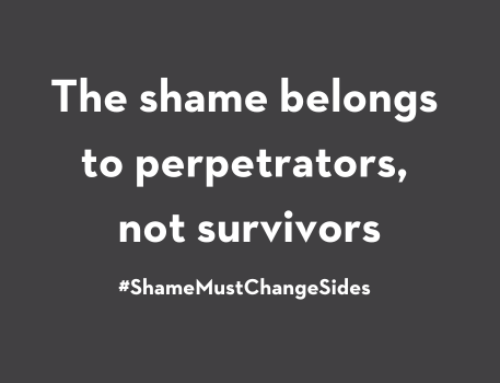Pour la version français, cliquez ici. / for the French version, click here.
The pandemic coronavirus disease, or COVID-19, has dominated the news. Many of us are contemplating what we can do to reduce risks and prevent transmission, given recent estimates that 30 to 70 percent of people in Canada could become infected.
But have we considered the gendered impacts of coronavirus in Canada?
Any emergency or disaster is experienced differently by different genders, and it’s not just a matter of biology, infection rates, and severity of illness. The gendered experience of coronavirus is grounded in gender inequalities that impact all of us, every single day. Here are some interrelated gendered impacts we need to think about and act on.
1. More caregiving and housework
In general, statistics show that women in Canada carry more unpaid housework and caregiving responsibilities than men, including child and elder care. With growing strain on hospitals and health services, school closures, and more people going into self-isolation and quarantine, women will inevitably have to take on increased unpaid caregiving needs.
Consider responsibilities like cleaning and food preparation. These needs will only intensify with coronavirus – think about the rigorous cleaning and hours of close attention that are required when someone is seriously ill.
2. More economic stress
As women absorb more unpaid care responsibilities, they may have to sacrifice their incomes.
Women already experience a gender pay gap where they tend to make less than men and are more likely to have part-time and precarious jobs. Poverty itself is gendered, and particularly difficult for single mothers raising children. Gendered poverty and the gender wage gap combine to make matters worse for those who face discrimination beyond gender, including racialized women, Indigenous women, and women with disabilities.
These dynamics mean that work interruptions and stoppages due to coronavirus, whether it’s a result of business problems like layoffs or having to care for sick loved ones, will highly impact women. Of course, lost hours translates to more economic insecurities for them and their children.
3. More gender-based violence
There’s powerful research on how disaster situations often lead to increased gender-based violence. Existing forms of violence that women and trans and non-binary people are at high risk of can increase, including intimate partner abuse, sexual assault, and emotional abuse. Sometimes, new forms of gendered violence can emerge too.
In China, there’s been a spike in domestic violence with the imposition of coronavirus quarantines. Canada may also track spikes in gendered violence as the coronavirus situation develops.
4. Less access to support services
Increased rates of violence have to be considered against service interruptions and closures. Shelters for women fleeing violence may be particularly concerned about their capacity to keep their doors open in the wake of coronavirus. If they’re forced to close or scale back, women seeking their life-saving assistance may have to stay in dangerous situations at home.
Other services will undoubtedly experience challenges in the coming weeks. This includes the healthy relationship and empowerment programs, job training programs, and poverty reduction services we support all over Canada.
The gendered impacts of coronavirus isn’t a “fringe issue”.
In so many ways, diverse women are on the frontlines of COVID-19 response. Think of nurses, personal support workers, migrant caregivers, mothers, grandmothers, and aunts. They are both at risk of contracting the virus and critical to reducing the virus’ spread.
We have to take the gendered impacts of coronavirus seriously and invest to end longstanding concerns like gendered economic strain and gender-based violence. Efforts to build a gender equal Canada are just as important as ever, and just as critical to our well-being and quality of life as ever.
Stay tuned for more information on the gendered impacts of coronavirus in the words of grassroots service providers we support all over Canada.
If you are able, please contribute to our Tireless Together Fund launched in response to the COVID-19 crisis in Canada. Your contribution will help ensure programs for diverse women, girls, and trans and non-binary people can continue through the pandemic and into the aftermath, including programs that build leadership skills and opportunities.
Learn more:
Women’s “Worry Work in the COVID-19 Pandemic
Women’s Leadership in COVID-19: Seen and Unseen
The Difficult Economic Side-Effects of COVID-19 for Women







